-

POST-NUCLEAR PITCHES What do you want from Fallout 5? We asked some Fallout community staples what they need from the next game in Bethesda's series
We've likely still got a while to wait for the real thing, but as we delve into Fallout 4's next-gen update, let's have some fun with the unknown.
-
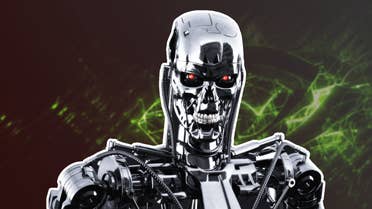
AI'LL B THERE 4 U I talked to Nvidia’s AI NPC: it’s impressive, uncanny, an ethical nightmare, and inevitably here to stay - like it or not
Is this the beginning of the robot uprising, or just a weird little novelty that will tire itself out? A little of column A, a little of column B.
-

BAKE OFF Stellar Blade review: Having its cake, and eating it
You're going to enjoy this triple-A action romp, if you overlook the rear-end and don't make an ass of yourself.
-

MAGICALLY MAGNETIC New report states rumored Switch 2 console will feature magnetic Joy-Cons and potential size boost
Bigger, better, faster, more.
-

Mere moments from hitting the record-breaking level 300, a list of problems is aired out in front of thousands of live viewers.
-
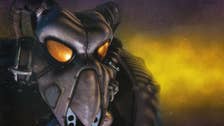
THE WORLD ON FIRE Hear me out. After the Fallout TV show I don't want a new Fallout FPS - I'm fiending for a top down RPG
There's never been a better opportunity to head back to the series' roots
-

Folks who've grabbed the game via PlayStation Plus got a fairly nasty surprise yesterday, and that wasn't the only problem being reported.
Psst! Explore our new "For you" section and get personalised recommendations about what to read.
-
.png?width=271&height=153&fit=crop&quality=70&format=jpg&auto=webp)
STAY OUTTA THE SWAMP Manor Lords has entered Early Access and for the next two weeks you can take a tenner off, so hurry up and grab it
One day, lad, all this will be yours. What, the curtains?
-

We're all living in a gacha game world now, but who holds the throne of the F2P empire? Figuring it out isn't as simple as you think.
-

COARSE AND ROUGH Sand Land review – an imperfect, but worthy, final game from one of the best to ever do it
Simplicity is the name of the game here, but you'll still come away happy.
-

SPEND $$ TO EARN $$ Xbox games revenue surges with Activision boost and Game Pass users rack up millions of hours playing Diablo 4 - Microsoft Q3
All thanks to that really small acquisition it made not long ago.
-
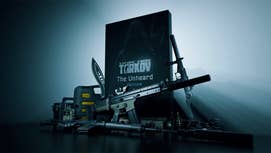
EXTRACTING PLAYERS Escape from Tarkov's community goes up in flames over the most expensive edition's pricing and content changes
That's a big yikes from us.
-
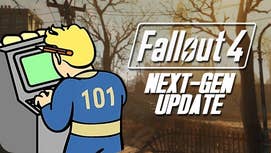
ATOMIC DROP Fallout 4 next-gen update release time: When will it arrive?
We already know it'll contain some cool Enclave goodies and fun-looking guns, but when will it drop?
-
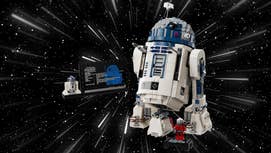
Deals This new Lego R2-D2 droid figure is in prime condition, and a real bargain with ?15 off
Comes with a Darth Malek Minifigure too.
-

LOOSE CANON The Fenix rises again? Did a veteran COG actor just spill the beans on Gears of War 6?
Prepare to crouch behind cover again.
-

DARK THROWBACK Star Wars: Tales of the Empire is bringing General Grievous back, and there's a great explanation behind it
Not every tale in this new mini-series is set during the Empire's reign.
-
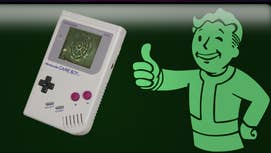
It's a work-in-progress, but who'd pass up a chance to relive their childhood in Vault 101?
-
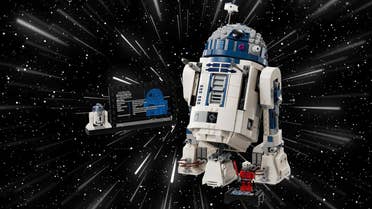
This new Lego R2-D2 droid figure is in prime condition, and a real bargain with ?15 off
Comes with a Darth Malek Minifigure too.
-

Get the remote play handheld for the PS5 while you can.
-

If you need Fallout 4's ultrawide goodness in the next-gen PC update, we've got the monitor for you
Start gaming in ultrawide resolution for just $250.
-

APE RIDERS At this rate, they should call it Kingdom of the Planet of the Apes and Horses
Apes on horses look cool as hell, and Disney knows it.
-

VIRUS SURVIVORS 28 Years Later continues to sprint and infects three huge actors, but Cillian Murphy isn't confirmed yet
The apocalypse is star-studded.
-

KLUTCH KILLING Helldivers 2's latest Major Order looked a lost cause for days, but the battle has come down to one planet
The defense of Ustotu is on, and it might end up being a close-run thing.
-
.png?width=271&height=153&fit=crop&quality=70&format=jpg&auto=webp)
PEELY SERIOUS Super Monkey Ball Banana Rumble 16-player online mayhem revealed in new Battle Modes trailer from SEGA
Race, blast, and battle your friends for banana domination.
-

SKIP THE BIG MAC Don't Starve studio's co-op roguelike Rotwood sprouts on Steam Early Access: Jump into a world of monstrous encounters for less than a value meal
The world has been thrown into chaos, and it's up to you and your friends to battle the corrupted beasts of the Rotwood.
-

WELL, CAN YOU? Can you play Fallout: London on Xbox and PlayStation consoles?
It's a question you might well have about the highly-anticipated Fallout 4 mod, and we're here to answer it.
-

STRONG INITIATIVE Roll20 is about to make your Discord tabletop nights a whole lot easier
A real advantage.
-

Get the remote play handheld for the PS5 while you can.
-

Deals If you need Fallout 4's ultrawide goodness in the next-gen PC update, we've got the monitor for you
Start gaming in ultrawide resolution for just $250.
-

A CRUEL ANGEL'S LIST A Japanese TV station asked international anime fans their top 20 openings, and the selection mostly proves they don't watch much anime
Just throw the list out and start again.
-

COARSE AND ROUGH Sand Land review – an imperfect, but worthy, final game from one of the best to ever do it
Simplicity is the name of the game here, but you'll still come away happy.
-

BAKE OFF Stellar Blade review: Having its cake, and eating it
You're going to enjoy this triple-A action romp, if you overlook the rear-end and don't make an ass of yourself.
-

YOU SMOOCH ONE GOAT Sucker for Love: Date to Die For review - '90s anime-inspired romantic horror keeps things short and sweet
The Sucker for Love series continues to play with your expectations for its second outing, rebelling against the genre devices it also lovingly spoofs.
-

The Witcher 3 New Game+: How to start and what carries over
Here's everything you need to know about starting The Witcher 3 over in NG+ mode, including what carries over between saves.
-

THOSE WHO PLAY Manor Lords is 2024's must-play strategy game, even in early access – and?a massive win for Game Pass
Slavic Magic has already made one of the best strategy games of 2024 –?in a Manor of speaking (sorry).
-

WAKE UP AND SIGN UP Zenless Zone Zero finally gets a release date, as it soars past 30 million pre-registered players
That figure was reached before 24 hours passed, by the way.
-

AUTOMAT-OLYMPICS Helldivers 2's latest order might be a bit of a struggle, but at least players have discovered a new Olympic sport - Factory Strider parkour
Hey, if you're gonna get court martialed for making weapon suggestions, why not find a different hobby?
-
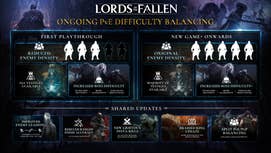
LMAPBEARER'S END Lords of the Fallen's final major update says screw it, lets you balance the game yourself
The Lords of the Fallen roadmap has reached its conclusion, with one last big milestone.
-

Will they pull the trigger, so to speak?
-

YOU'RE FIRE-HIRED Following the kick off of EA Sports FC 24 TOTS, its latest update stops managers from cheekily dodging firings
Bad news if you were planning to take a break from pack openings by roleplaying as an uno-reverse card wielder who gets relegated all the time.
-

Who knows if the truth will ever see the light of day, though.
-

TREASURE AWAITS Percy Jackson writer sets sail from Disney+ to Netflix as he joins One Piece as co-showrunner
Anime ahoy!
-

MASS APPEAL FUSION However popular you think the Fallout games are right now, you’re wrong – the numbers are astonishing
Post TV show, Fallout fever's in full flow, and Fallout 4's next-gen update hasn't even arrived quite yet.
-

PODCAST They'd never get away with THIS nowadays! The Best Games Ever Podcast episode 96
Nowadays, right, you can't even massacre everyone on a football pitch in an ill-advised parody of the first world war, because of woke
-

VIDEO An heir to LucasArts? After 8 years in development, Harold Halibut is too good to be a 90s throwback
Part Wallace & Gromit, part Red Dwarf, there's a magic to the way this Game Pass gem blends old and new.
-

RAD ROLEPLAY How to play Fallout 4 as your fave from the TV show
Already binged Amazon's series, and feeling bereft? Try heading into the wasteland as Lucy, Maximus, or The Ghoul
-

LOOPHOLE NO MORE Steam just changed its refund policy, but it shouldn’t affect you too much – unless you were gaming the system
Valve clearly wants to keep up with the growing trend of games charging extra money to let players in early.
-
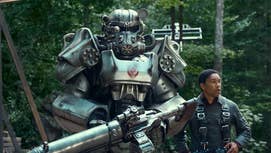
IT'S A GAMBLE Fallout season 2 will feature, er, that iconic location, but you don't need to worry about your headcanon
Your version of events are still yours, no matter what the show says.
-

You have to follow the sweepstakes rules, no x-ceptions.
-

PODCAST They'd never get away with THIS nowadays! The Best Games Ever Podcast episode 96
Nowadays, right, you can't even massacre everyone on a football pitch in an ill-advised parody of the first world war, because of woke
-

YOU SMOOCH ONE GOAT Sucker for Love: Date to Die For review - '90s anime-inspired romantic horror keeps things short and sweet
The Sucker for Love series continues to play with your expectations for its second outing, rebelling against the genre devices it also lovingly spoofs.
-
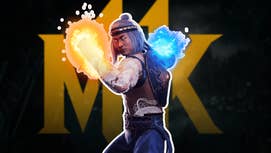
I’ve always felt that Mortal Kombat 11 was the end of an era for NetherRealm, and Mortal Kombat 1 solidified that for me.
-

There's not much to see just yet, but it is looking lovely so far.
-

Podcast Best Games Ever Podcast - Extended Edition Info Page
All the info you need to get your hands on the for-members-only extended edition of VG247's podcast.
-

TEAMWORK TROUBLE Chill out, Helldivers 2 hardcores trying to get casual players to stick to the battle plan, Arrowhead's doing what it can to help out
"Short of handing you the win, there isn't a lot more we can do."
-

It certainly looks like you'll be in for a weird time with The Watchers.
-

BE A PAL Palworld Guide: How to become a Pal Master
Get the most out of the wild islands of Palpagos with our Palworld Guide!
-
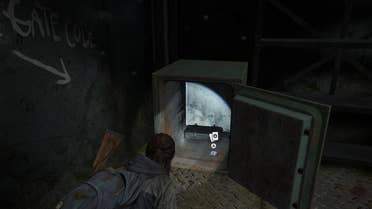
The Last of Us 2 safe codes and combinations - all safe locations
All the safe codes and their locations in The Last of Us 2.
-
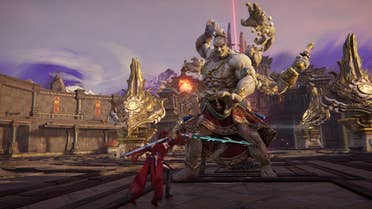
Naraka Bladepoint Tier List: Best characters for Solos and Trios
These are the best characters in Naraka: Bladepoint as decided by the top pro players!
-

TAKING IT SLOW Tom Holland says "everyone wants" Spider-Man 4 to happen, but he's still staying cautious
"We want to make sure we're not overdoing the same things."
-

HAM RADIO SILENCE As Fallout: London's former release date passes by, its lead laments the effects of Bethesda's apparent next-gen update silence
"People are blaming Bethesda, even though I asked them not to, and I think that's inevitable when there's that lack of communication."
-

LaKeith Stanfield is currently in talks to star in the project.
-
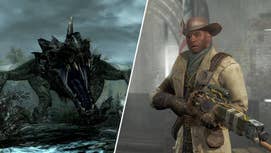
JUST A FEW MODS Amid Fallout TV show fever, Nexus Mods says it's been dishing out as much data as downloading Skyrim "twice per second" would involve
Yep, just a casual couple of full Bethesda RPG's worth of mods per moment over the course of several days.
-

SALTY? Illaoi finally gets gameplay showcase ahead of 2XKO Evo Japan demo
League's very own seaside slugger has her kit explained in length by one of her chief designers.
-

VIDEO An heir to LucasArts? After 8 years in development, Harold Halibut is too good to be a 90s throwback
Part Wallace & Gromit, part Red Dwarf, there's a magic to the way this Game Pass gem blends old and new.
-

FIGHTING MUSIC "We're trying something out that's very experimental" - Casey Edwards opens up about 2XKO's soundtrack
A chat with Casey Edwards on his journey to 2XKO, and his role on the project.
-

FALL-THAT JAZZ The Best Fallout games: Every Fallout game ranked
You inevitably will when we put Tactics at number one, but please don't get angry.
-

CAN YOU HANDLE IT? EA Sports F1 24 preview - Yes, it might even give you a reason to actually drive the Williams
Logan Sargeant surpassing Lewis Hamilton's win total here I come.
-

IT'S ALL YELLOW Deadpool & Wolverine's first full trailer finally shows a very sad, but faithfully dressed Hugh Jackman
And it introduces us to the film's big bad.









